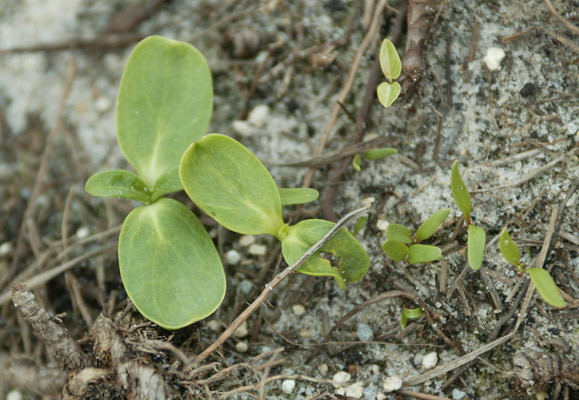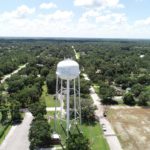
FELLSMERE — The first sprouts of elephant grass are beginning to appear on a 2-acre bio-fuel test site in Fellsmere, having survived the cold snap of 2010 and in good shape to withstand the next freeze as well.
“I don’t think it’s too big a problem,” said Green Flight International’s president, Douglas Rodante, whose company planted the test crop.
“I’m more concerned with the irrigation freezing,” Rodante said. That grass, along with energy cane, will eventually be turned into the food needed to feed algae to create alternative fuel. That fuel could someday be used to power vehicles and aircraft, according to Green Flight.
The test crop was planted last month — about a month behind schedule — tucked away behind the Habitat for Humanity community of Grace Meadows off N. Willow Street.
The University of Florida provided Green Flight International with the seedlings it needed for its test crop.
“You can’t go out and buy the seedlings,” Rodante said, explaining that both energy cane and elephant grass need to be propagated instead.
In about six months, Green Flight will have the option to start harvesting. It just depends on what Green Flight International wants, according to Rodante.
If Green Flight wants to harvest some of the plants to help power its facility, the company can harvest early. If it wants more of the plants to feed the algae — it will wait.
“It depends on what our goals are,” Rodante said, adding the company hasn’t quite decided if it wants to harvest early or not.
The company could decide to harvest some early and the rest later, he said.
Neither the algae nor its food stock are in the food chain, Rodante explained, and neither would take up space on traditional food supply farms.
The elephant grass and energy cane the company will grow on Fellsmere’s property will be harvested for its cellulose — which is converted to sugars — and then be fed to the algae. After a time, the algae would then be drained of its water and processed to extract its oil. The oil, then, would be refined into fuel and the fuel’s by-products – much like petroleum.
Green Flight International has gained recognition for promoting bio-fuels. It has flown a jet across the country – from California to Florida – running on a bio-diesel fuel of soy and animal fat. Now, the company wants to come up with a more cost-effective, earth-friendly fuel based on algae.
“We’re looking forward to an exciting year,” Rodante said.
He has plans to meet with Fellsmere city leaders in the coming weeks to discuss expanding Green Flight’s operations.
Rodante is considering establishing algae ponds within the city to get started on creating the bio fuel and setting up a research and development facility.
“They’re great,” Rodante said of the City of Fellsmere.
Fellsmere City Manager Jason Nunemaker said he expects to sit down with Rodante soon to discuss the plans and try to figure out where to set up shop.
“I’m excited about it,” Nunemaker said of Green Flight International’s plans.
How many ponds, the size and whether or not any existing ponds could be used has not yet been determined.
“We’ll see what happens,” Rodante said.
Read related article: Fellsmere to host test crop for alternative fuels






